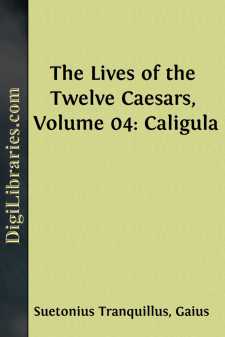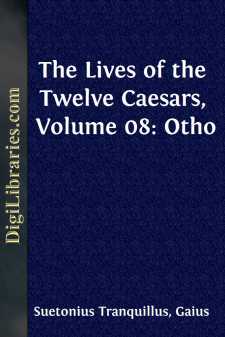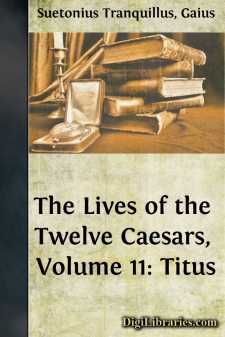Categories
- Antiques & Collectibles 13
- Architecture 36
- Art 48
- Bibles 22
- Biography & Autobiography 813
- Body, Mind & Spirit 142
- Business & Economics 28
- Children's Books 15
- Children's Fiction 12
- Computers 4
- Cooking 94
- Crafts & Hobbies 4
- Drama 346
- Education 46
- Family & Relationships 57
- Fiction 11828
- Games 19
- Gardening 17
- Health & Fitness 34
- History 1377
- House & Home 1
- Humor 147
- Juvenile Fiction 1873
- Juvenile Nonfiction 202
- Language Arts & Disciplines 88
- Law 16
- Literary Collections 686
- Literary Criticism 179
- Mathematics 13
- Medical 41
- Music 40
- Nature 179
- Non-Classifiable 1768
- Performing Arts 7
- Periodicals 1453
- Philosophy 64
- Photography 2
- Poetry 896
- Political Science 203
- Psychology 42
- Reference 154
- Religion 513
- Science 126
- Self-Help 84
- Social Science 81
- Sports & Recreation 34
- Study Aids 3
- Technology & Engineering 59
- Transportation 23
- Travel 463
- True Crime 29
Sort by:
T. FLAVIUS VESPASIANUS AUGUSTUS. (441) I. The empire, which had been long thrown into a disturbed and unsetted state, by the rebellion and violent death of its three last rulers, was at length restored to peace and security by the Flavian family, whose descent was indeed obscure, and which boasted no ancestral honours; but the public had no cause to regret its elevation; though it is acknowledged that...
more...
CAIUS CAESAR CALIGULA. (251) I. Germanicus, the father of Caius Caesar, and son of Drusus and the younger Antonia, was, after his adoption by Tiberius, his uncle, preferred to the quaestorship [377] five years before he had attained the legal age, and immediately upon the expiration of that office, to the consulship [378]. Having been sent to the army in Germany, he restored order among the legions,...
more...
AULUS VITELLIUS. (427) I. Very different accounts are given of the origin of the Vitellian family. Some describe it as ancient and noble, others as recent and obscure, nay, extremely mean. I am inclined to think, that these several representations have been made by the flatterers and detractors of Vitellius, after he became emperor, unless the fortunes of the family varied before. There is extant a...
more...
A. SALVIUS OTHO. (416) I. The ancestors of Otho were originally of the town of Ferentum, of an ancient and honourable family, and, indeed, one of the most considerable in Etruria. His grandfather, M. Salvius Otho (whose father was a Roman knight, but his mother of mean extraction, for it is not certain whether she was free-born), by the favour of Livia Augusta, in whose house he had his education, was...
more...
TITUS FLAVIUS VESPASIANUS AUGUSTUS. (465) I. Titus, who had the same cognomen with his father, was the darling and delight of mankind; so much did the natural genius, address, or good fortune he possessed tend to conciliate the favour of all. This was, indeed, extremely difficult, after he became emperor, as before that time, and even during the reign of his father, he lay under public odium and...
more...






